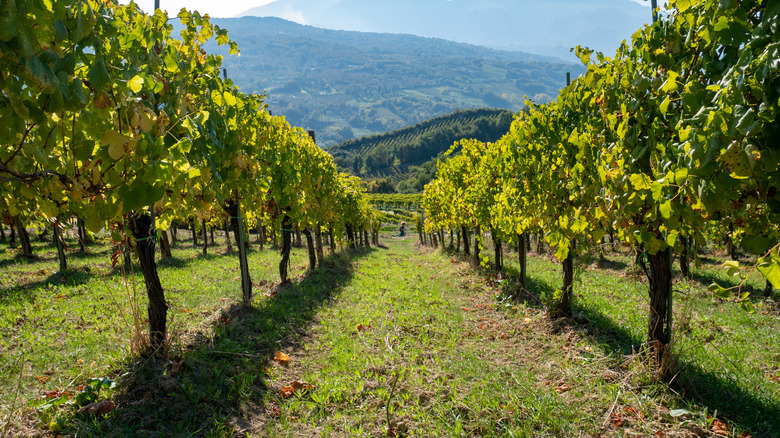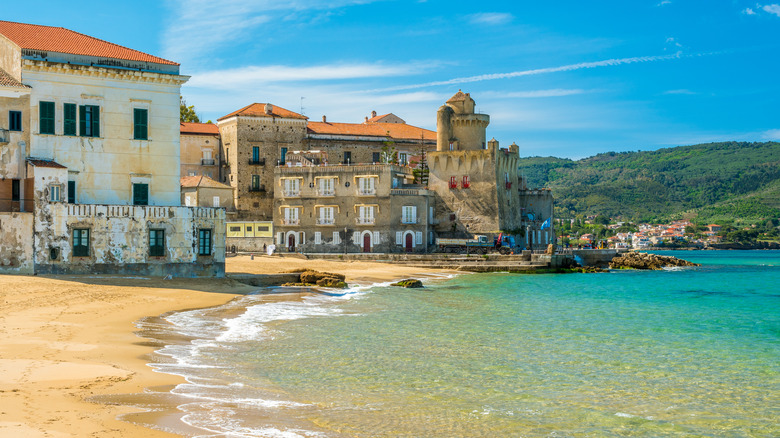Wedged between a series of coastal hamlets along the cliffs, just south of Italy’s Amalfi Coast, few things compare to the splendor of Cilento — a region often considered Italy’s best-kept secret. Located on the southernmost tip of the Campania coastline in the province of Salerno, Cilento stretches from the town of Paestum to Marina di Camerota. According to U.S. News, the Amalfi Coast ranks within the top three travel destinations in Italy, not surprisingly, right behind Rome and Florence. However, you may want to carefully consider your village of choice, as popular hot spots like Positano are often overcrowded and packed with honeymooning couples. According to travel expert and Italian native Giada De Laurentiis, Cilento is nothing short of a “hidden paradise” and a quiet corner compared to Amalfi.
Much of Cilento’s culture was shaped by its Greek inhabitants, who fashioned what are still some of the best-preserved Greek temples in the world, dating back over 3,000 years. It’s a beacon for couples and high-profile personalities hungry for a taste of the beautiful Italian coast. Bucolic villages, aesthetic piazzas, towering ridges, and secluded picturesque beaches dot the coastline, creating a fairytale-like haven just south of Italy’s famous Amalfi Coast. When planning your route to and from Cilento, travelers should note the nearest train station in Battipaglia and the nearest airport (the Airport of Naples), located in Capodichino. However, traveling by car is the best mode of transportation, giving you the freedom and flexibility to visit the various coastal towns of this region as you wish.
A soulful lifestyle

It’s not just the scenic vistas that make Cilento sparkle. Home of the popular Mediterranean diet, this region’s population thrives off a lifestyle that embraces a diet rich in nutrient-dense seasonal crops, resulting in increased longevity and reduced health issues. The seasonal produce harvested in Cilento has been linked to the city’s fascinating community of centenarians who have been noted to live active, healthy lives even into very old age. According to Food Pharmacy, the average life expectancy in Cilento is 92 years for women and 85 years for men. Rotating crops with the ever-changing seasons and sustaining a diet rich in nutrient-dense legumes, vegetables, fruits, whole grains, healthy fats, red wine, and herbs are what researchers have discovered are the primary pillars for locals’ increased longevity and improved cognition. This variety of naturally-sourced ingredients has also contributed to greater blood circulation, temperature regulation, skin health, and improved blood pressure.
There’s no denying locals in Cilento certainly know a thing or two when it comes to food, especially their dairy products. Mozzarella di bufala is the bread and butter of this coastline, as a registered product of this region under the Campania Agriculture Department. This cheese has been a sacred part of Cilento’s culture for as long as buffalo have been grazing on its pastures — predicted to be somewhere around the time of Norman kings in the 12th and 13th centuries – and it is still loved just the same!
A region of natural wonder

As for how to spend your time while in Cilento, Laurentiis recommends getting lost among the picturesque cobblestone streets of Santa Maria Castellabate, boating through Cilento National Park, or wine-tasting in the vineyards of Tredaniele. A UNESCO World Heritage site, Cilento National Park comprises rushing river valleys and the shimmering aquamarine waters of the eastern Tyrrhenian Sea. Housed within the park are the remaining Greek temples of Paestum, in the ancient city of Poseidonia (which was later renamed by the Romans). First founded in the 7th century, the temples were dedicated to the gods Athena, Poseidon, and Hera.
Fancy a bit of wine tasting on your trip to Cilento? According to Laurentiis, Tredaniele is the best place to sample indigenous wines in this region’s Italian countryside. The winery is owned and operated by a native Trentinara family, embracing the wines and sparkling wines native to Campania’s coastline. The grapes planted on this stretch of pasteurized land were first introduced to Italy by Greek colonizers, making their way from the Peloponnese. The terroir on which these vineyards stand supports the perfect cultural landscape for a flourishing harvest of these indigenous grapes. Multiple grape varieties can be found prospering along the Cilento coastline, ranging from Pinot Noir to Cabernet and Aglianico. Wine tastings paired with this region’s famous mozzarella cheese, as well as cultural events hosted for the public, are popular occurrences at this winery, making it a must-visit wine destination for an authentic taste of Cilento’s culture.

